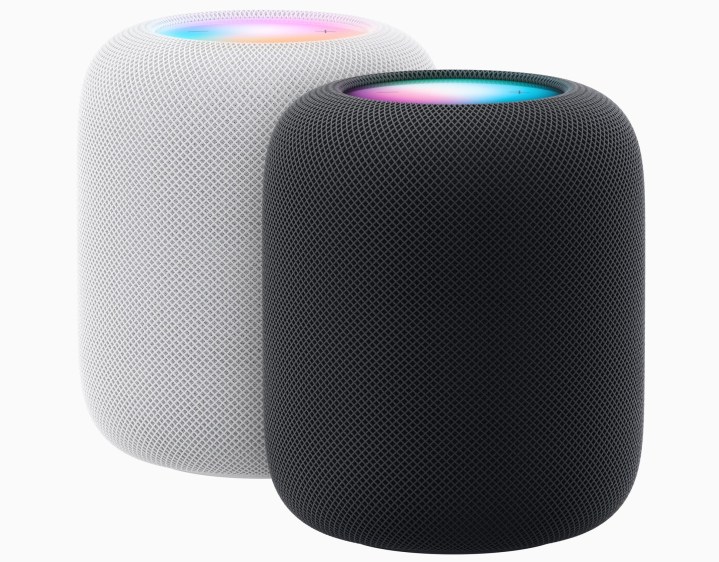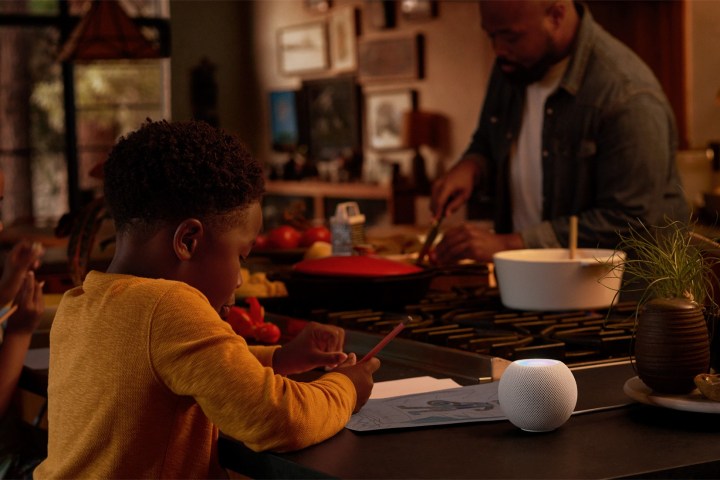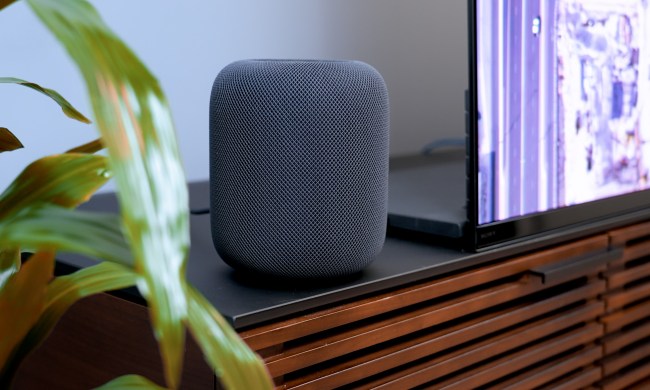Apple’s HomePod mini is one of the most popular smart speakers of 2023 — but the newly announced HomePod is going to give it a run for its money. While the miniature HomeKit hub can control your smart home gear and engage with Siri, the HomePod 2023 can do all of that while also pumping out some impressive audio. But does the HomePod do enough to warrant its $299 price tag? Here’s a closer look at both the HomePod and HomePod mini to help you determine which is best for your smart home.
Pricing and availability

One of the most common complaints about the original HomePod (released in 2018) was that it was one of the most expensive smart speakers on the market. That’s still true, as the HomePod 2023 clocks in at $299.
The HomePod mini, on the other hand, is priced more competitively at $99, the same as the fourth-generation Amazon Echo.
Winner: The HomePod mini wins easily. However, these two speakers are so different that it’s difficult to compare them solely on the cost.
Design

The design differences between the two HomePods are stark: The HomePod 2023 is designed to have a central location with its large, cylindrical shape, and the focus on competing with past Amazon Echo devices is clear. The fabric material helps protect the internal speakers, while the solid 5.6-inch base needs a bit of space. There is a simple LED light at the top to serve as an indicator and enable somewhat confusing touch controls — tap for volume controls, press down for Siri, double-tap to skip songs, etc. It also features the S7 chip for advanced room-sensing abilities and can optimize its performance based on its surroundings.
The HomePod mini goes for a very different approach. This rounded speaker sports a bulbous design and is much smaller — only 3.3 inches high and 3.9 inches wide. This allows it to sit more comfortably on narrow shelves or bed stands, and you don’t have to find as much space on your desk to add a HomePod Mini companion.
Winner: HomePod mini. The little orb looks great and is easier to position in different locations throughout the home.
Speakers and sound

The HomePod 2023 is equipped with a four-inch, high-excursion woofer and five tweeters, plus spatial awareness technology to adapt sound for the room it’s in. In other words, Apple has put some impressive tech into the HomePod, and it’ll sound great regardless of where you place it or what it’s streaming.
The HomePod mini is designed more for accessibility than for sound. It only has one full-range driver, plus a design that includes dual passive radiators for amplification (Amazon’s latest Echo does a bit better with a 3-inch woofer and dual 0.8-inch tweeters). In lieu of dedicated spatial adaptivity, Apple pairs its S5 chip with a feature called computational audio for the HomePod mini. While the speaker doesn’t exactly adapt to its listening environment, the computational function helps to balance sound output based on where the speaker is placed and what type of content it’s playing. In terms of highs and lows, the HomePod mini does a great job of delivering both without cutting off the bass, but it’s no HomePod.
The mini is designed more for up-close, personal sound for one person — it’s another indication that the HomePod mini is most at home on your desk while you work (or in a similar location). Apple suggests setting up HomePod minis around the house for better sound results, but this just raises the cost up to HomePod levels without as many benefits for audio quality.
Both speakers have multiroom audio options, too. That means that if you have two HomePods of either model, you can link them together and play the same music/sounds on both at the same time. This is a bonus for those who already have a HomePod but are thinking about getting a mini (and it also works with AirPlay 2). Apple has an Intercom mode that allows HomePods to act as two-way audio devices, too.
Long story short — HomePod is designed to churn out incredible sound, while the HomePod mini is meant to be a bit more accessible and is great for smaller spaces.
Winner: HomePod
Siri and smart features

There’s no battle between voice assistants here, as each speaker uses Siri and has all the same Siri capabilities. They can both act as smart home hubs for HomeKit home automation and support AirPlay 2 devices.
Likewise, both speakers offer the same services. Both are compatible with Apple Music, TuneIn, iHeartRadio, and Radio.com, as well as any Apple Podcasts.
Both smart speakers also support Matter, allowing you to sync with other Matter-enabled devices.
Winner: N/A
Apple TV compatibility

HomePod mini and HomePod both work with Apple TV. This makes it easy to enhance your audio or gain Siri smart controls. Of course, the larger HomePod is going to sound better than the HomePod mini when connected to your system, but it’s great that both products offer the feature.
Winner: N/A
Which should you buy?
For a personal smart speaker sitting beside you on your desk, the affordable HomePod mini is the best choice. For full-room sound and entertainment, as well as connections with your home theater, the HomePod is a better choice.
Considering the costs, if you don’t have any experience with HomePods, we suggest buying the HomePod mini (the same goes for giving it as a gift, too). This is a great entry-level pick, and you can add the larger HomePod later on if you want to build out your Apple collection.


